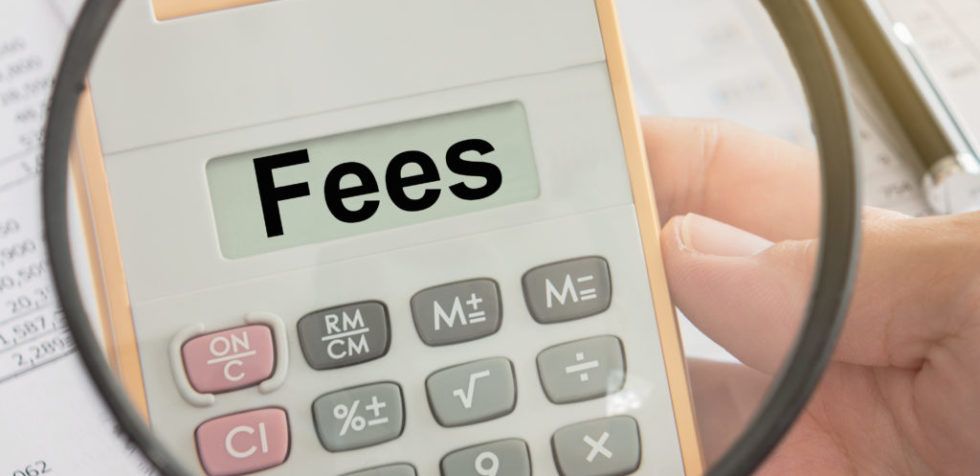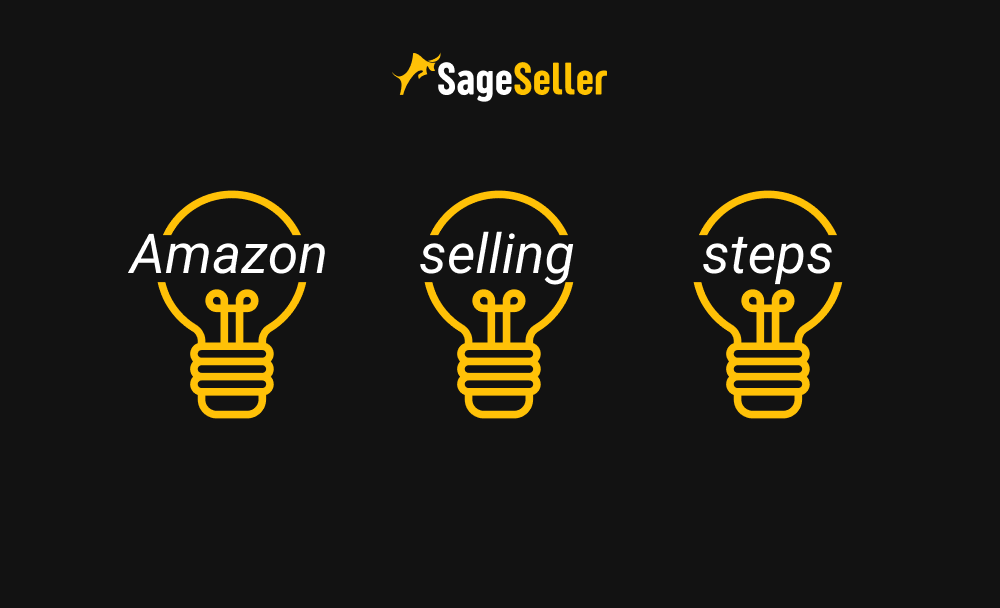Learn what an Amazon fee calculator is. Find out how to calculate Amazon fees and easily understand key product profitability figures.
Very often, when selling on Amazon, sellers would calculate Amazon fees with the Amazon seller fees calculator. Amazon fee calculator seems to be an easy and practical tool to estimate your profit when doing sales on Amazon. But, unfortunately, no less often you run into the situation when the revenue is at the far end much lower than you expected. And if you are seriously intending to make money selling on Amazon, you need to understand how to calculate Amazon fees, what burns your Amazon profit, and how to avoid it.
The first thing you need to understand is that Amazon charges you for every service. Some fees are quite substantial, some are small, but in total it’s 80+ different fees and commissions. Some of those, like Product charges, Product rebates, Amazon Fee you can see in your Seller Central.
Why Do You Need More than an Amazon Fees Calculator?
To calculate Amazon fees, which are quite numerous, as we said, sellers would consider tools like Amazon fees calculator or Amazon fulfillment fees calculator. FBA free calculator for Amazon could help you do the pre-sale estimates.
When you miss out on 2 small fees for one of your products, this is most likely not a problem, though the profit calculation will not be accurate. But when you sell hundreds of items, the missed fees might pile up like a snowball rolling down the hill, burning down your profit.

What Fees does Amazon Charge Sellers?
We are going to give you quite a detailed picture of the most commonly encountered Amazon fees. When you look at the list below you will understand why the Amazon seller fees calculator would not give you the full picture.
Account Fees
The Subscription on Amazon is a monthly fee for sellers with a Professional selling plan. For sellers with a unified account, it’s a one-time fee. It is $39.99/month. Individual sellers don't pay it. They pay a $0.99/item fee on each sale.
Packing in bubble wrap (Bubblewrap Fee). If the goods have to be packed in bubble wrap, a fee will also apply.
Charge (Product Ads). As a seller, you can pay for PPC advertising with your credit card or from your balance. Principal Ads Payment Charge is the amount you will pay Amazon from your account if you choose to pay them with your balance.
FBA Inbound Convenience Fee. Inbound refers to the shipment that you send to Amazon. It could be coming from you directly or from your manufacturer. Amazon requires you to provide accurate information related to your inbound shipment to be processed efficiently. If you enter incorrect details on your carton information, you will pay a fee for the job Amazon has to do to correct it.
FBA Inbound Transportation Fee. These are the fees incurred when you send goods to Amazon's warehouse and get postage through Amazon.
FBA Inbound Transportation Program Fee arises if you work with UPS.
FBA Long-term Storage Fee. Once a year, Amazon charges the long-term storage fee for goods that have been in the FBA warehouse for more than 12 months.
FBA Storage Fee is the monthly fee for goods that you store in the FBA warehouse. It's calculated according to the volume.
Labeling Fee. You can instruct Amazon to provide the goods with a barcode/label for you. For this, Amazon takes a fee per piece.
Misc Adjustment is usually a fee referred to different things that are offset.
Polybagging Fee is charged on your request when Amazon packs your products in a bag (polybag).
Postage Billing: Delivery Confirmation is the cost of proof of mailing.
Postage Billing: Import Duty. Items shipped to countries outside of the United States may be subject to taxes, customs duties, and other import fees.
Postage Billing: Insurance. If you insure your goods when they are shipped to Amazon, the insurance amount is shown here.
Postage Billing: Postage is a fee charged for a shipment. It varies and is often subject to correction named Adjustments: Postage Billing – PostageAdjustment.
Return Postage Billing is a fee for the return cost of a shipment.
Orders and Refund Fees
Commission (Referral Fee) is a core fee, charged to all 3rd party sellers on Amazon. Amazon charges you a percentage of sales for the online marketplace services. The fee is variable and depends on the product category. As a rule, it is 15% of gross sales.
FBA Per Order Fulfillment Fee. You pay an FBA fee if you store your products at the Amazon warehouse, and Amazon ships them to your customers. This includes Shipping, refund management & support, inventory pick & pack, stocking, counting, delivering, loading, etc.
Get Paid Faster Fee is a 1.5% fee charged for the accelerated application of Sales Proceeds.
Giftwrap Chargeback. If the item is packed as a gift by Amazon, the net amount that the buyer had to pay will be deducted here. So, in the end, it's a zero-sum game.
Low-Value Goods (Low-Value Goods- Principal, Low-Value Goods - Shipping, Low-Value Goods - Tax Principal, Low-Value Goods - Tax Shipping). In case if you sell low-value items, the resulting revenue generated is listed as "principal". "Shipping" is the fee paid by the buyer. In some countries, this tax can amount to up to 15%. If you do not consider this tax when calculating your prices, you might lose a lot of money.
Marketplace Facilitator Tax (Marketplace Facilitator Tax – Other, Marketplace Facilitator Tax – Principal, Marketplace Facilitator Tax - Principal Retro Charge, Marketplace Facilitator Tax – Restocking Fee, Marketplace Facilitator Tax – Shipping). Being the marketplace facilitator, Amazon bears responsibility for calculating and collecting sales tax on third-party sellers where the corresponding legislation is applicable.
Refund Commission is the amount of the sales commission withheld by Amazon. In the general case, this is 20% of the total sales commission.
Restocking Fee would be charged for an order that a restocking fee was charged on, but not for all Marketplace Facilitator States.
Return Shipping. If a seller chooses to fulfill the product on their own, they will need to pay the carrier for the return shipment. If the return is due to an Amazon mistake, it should refund the seller’s return shipping costs.
Sales Tax Collection Fee. At times, Amazon may charge a 2.9% fee for an order to collect sales tax on the seller’s behalf for states where the marketplace facilitator is not established, and the seller has set it in their Seller Central tax settings as a nexus.
Shipping Chargeback. If Amazon is handling the shipment and the shipping costs are incurred by the buyer, Amazon deducts a net amount again.
Shipping Holdback is a referral fee, charged on the shipment. In case of Amazon is performing the shipment, there is no Shipping Holdback Fee.
Tax is the tax charged on each order to Amazon buyers. The tax amount depends on the tax settings you’ve set in your Seller Central.
Variable Closing Fee, Fixed Closing Fee. Sellers who aren’t subscribed to the Professional tariff have to pay a fixed sales commission per each sold product. Also, you would need to pay a closing fee for each media item you’ve sold.
Adjustments Fees
Compensated Clawback. If Amazon has paid you money as a reimbursement before, e.g., for lost goods and has now found the goods again, Amazon will get its money back.
Other Fees
Debt Payment. When the FBA seller fails to sell anything and can't pay the storage fees, the seller has a balance. If the card on file is not working, it becomes a debt, and Amazon will seek to get payment on this debt. Amazon would normally withdraw this payment from your account.
Coupon Redemption Fee. Amazon charges a fee when you sell an item that has a coupon attached to it. When the buyer clips the coupon and makes the purchase you pay $0.60 as a fee for their “coupon service”.







